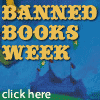

This month we are reading Greg Mortenson's
Stones into Schools: Promoting Peace with Education in Afghanistan and Pakistan. I
envisioned our discussion focusing largely on the question of the U.S. role in Afghanistan. But after a week of observing the devastation in Japan, I'm thinking there will be heightened interest in the aspect of the book that deals with rebuilding after the Kashmir earthquake. The
New York Times has assembled a
collection of opinions on the question of appropriate aid to Japan and Takashi Inoguchi
, president of the University of Niigata Prefecture and professor emeritus at the University of Tokyo, has a
response that I think "Dr. Greg" would heartily approve of, urging us to find ways to help the young people of Japan who have lost relatives and friends and face an uncertain future,
Those youngsters will be handicapped financially and psychologically, yet they will also shoulder Japan's reconstruction. The international community can encourage them by setting up opportunities to study abroad and educational programs and scholarships for acquiring foreign language and other important skills. This will help give Japan's young people the hope and courage to move on amid sorrow and despair.
Whether the disaster is war or an earthquake, the sensible solution does always seem to be to look to the future and prioritize the needs of our children, no? And they
will lead the way. Greg Mortenson
points us to an account of
Hazara children
rallying in sympathy for the children of Japan.

The other book we have read that most closely relates to this catastrophe is Svetlana Alexievich's
Voices from Chernobyl: The Oral History of a Nuclear Disaster
. If you need a refresher,
n+1 is running an
excerpt from
Voices. The twenty-fifth anniversary of the event is next month and news organizations are revisiting the site. Here's
NPR's
Talk of the Nation talking to reporter Henry Shukman from
Outside magazine, or read his article
here.
News reports emphasize how the Japanese nuclear reactor crisis has not reached Chernobyl levels of catastrophe. See
this article from
TPM and
ProPublica for both the technological and sociopolitical reasons this current accident is different. As human rights activists, we can be happy that, although there are some complaints about lack of information from Japanese authorities in this crisis, the level of transparency far exceeds that of Soviet-era Ukraine. Worth thinking about as we move forward in thinking about the use of nuclear power around the world, which governments can we trust with a similar level of disclosure?
Also worth noting, Rob Gifford (
China Road) is
reporting for NPR from the earthquake region, adding just the kind of details (
such as finding a woman sort her recycling) that make the monstrous scale of the tsunami and earthquake more human.
Finally, here's a
good place to start if you want to help, or maybe one of the best things you can do, especially if you live in a fault zone, is
be prepared.




